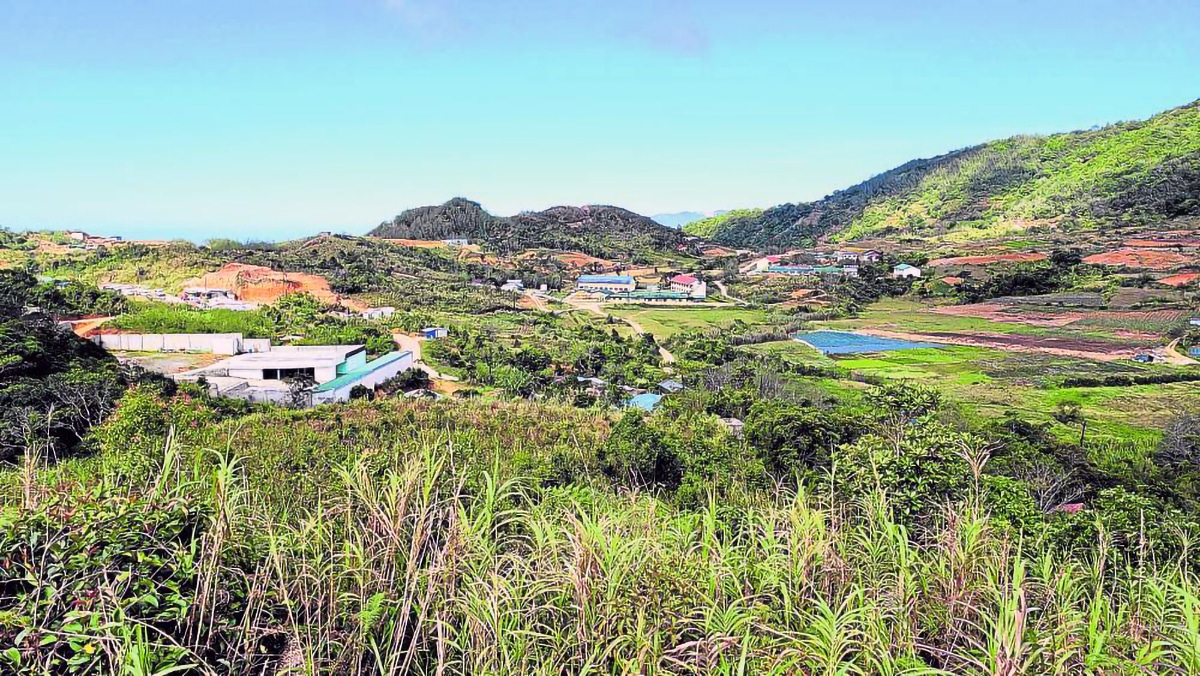
CENTER OF DISPUTE The village of Malico is caught in the center of a territorial dispute between the provinces of Pangasinan and Nueva Vizcaya. The community, which spans San Nicolas town in Pangasinan and Santa Fe town in Nueva Vizcaya, has been likened to Baguio City due to its terrain and weather and is rich in history as it was once a battleground during World War II. —WILLIE O. LOMIBAO
SAN NICOLAS, PANGASINAN — Firmly asserting its territorial jurisdiction over Malico against claims made by Nueva Vizcaya, the Pangasinan provincial government allocated P200 million worth of projects and services to this town, which will benefit the mountain village.
“We know there is a dispute over this territory. If Nueva Vizcaya claims it is theirs, we respect their point of view. My question is, do Malico residents believe it is part of Pangasinan? No matter what happens, it is part of Pangasinan,” said Pangasinan Gov. Ramon Guico III on Wednesday.
Guico announced the fund allocation during the “Lingap ed Barangay,” a program that brought health and dental services, and storytelling and book-giving activities to the village. The event held at Malico Elementary School gymnasium also introduced residents to the formation of a cooperative.
“If they still claim Malico, [we will give] P200 million again. That’s the commitment of the province. Do not grab Malico from Pangasinan. But if you (Nueva Vizcaya) will implement projects, that’s okay. What is important is we improve the lives of Malico residents,” he added.
READ: Pangasinan execs vow to keep village amid border dispute with N. Vizcaya town
Guico said Pangasinan “is open to agreement, but if you (Nueva Vizcaya) are so aggressive, we will fight back with projects and services.”
“This is not a war. We are hoping to coexist but respect should be given to the local government and San Nicolas, which you are encroaching on,” he said.
Villa Verde Trail
The mountain village is nestled on top of the Caraballo Mountains. Its elevation is 1,675 meters above sea level (masl), higher than Baguio City’s 1,470 masl, and thus has a colder temperature. It is populated by less than 200 families, mostly from the Kalanguya tribe.
It was used as a military base of the Imperial Japanese Army during World War II. A battle transpired there from February to June 1945, which led to the death or injury of 4,600 Japanese soldiers, 3,200 American soldiers, and countless Filipino residents. A memorial for them was erected at Salacsac Pass.
In an earlier interview, San Nicolas Mayor Alicia Primicias-Enriquez said the village used to be accessible to the public from Nueva Vizcaya. But when the 22.3-kilometer Villa Verde Trail was paved with concrete, it became more accessible from Pangasinan.
“Nueva Vizcaya [then] became aggressive in its claim that it is its territory, putting up flags and markers saying that it is part of that province,” she said.
Guico has been asserting the province’s rights over the village, which he said is “historically, ethnically” part of Pangasinan. He said he studied documents that showed the village belonged to Pangasinan, although the road from Nueva Vizcaya was constructed first.
“We will insist on our rights; we will establish what we need to establish there because the [residents] are aware that they are from Pangasinan. We will establish social and hard infrastructure there. We will give 100-percent support for Malico,” Guico said.
Two Malicos
In a telephone interview on Thursday, Nueva Vizcaya Gov. Jose Gambito Jr. said Pangasinan could not be prevented from pouring in funds for Malico but warned that “a violation of the laws will follow as a local government fund cannot be spent for another local government unit.”
Nueva Vizcaya officials insist that Malico, which they say is part of Santa Fe town, is a territory of its own and not a part of its neighboring similarly named Malico, which is under the jurisdiction of San Nicolas, Pangasinan.
Gambito, in an earlier statement, cited the provincial board’s position that the two local governments must respect the survey to be conducted by the National Mapping and Resource Information Authority (Namria), “which specifically sets the boundaries between the two villages.”
The Nueva Vizcaya provincial board has asked the local government of San Nicolas in Pangasinan to stop building infrastructure in the village’s portion in Santa Fe.
Gambito, on Thursday, said they would also study the filing of administrative charges to enforce their rights as the Namria “correctly” delineated the boundaries.
He said the two local governments had agreed to pay P600,000 each for the Namria delineation survey, but Pangasinan “did not fulfill its promise.”
“They are claiming title over a cadastral survey, but that is not the case for boundaries among local governments, as the Namria survey result showed it is ours,” Gambito said.
In an earlier resolution, the Nueva Vizcaya board encouraged the local government of San Nicolas, Pangasinan, to respect the boundaries of each town. It also urged San Nicolas to respect the rights of the Kalanguya tribe in Barangay Malico and their ancestral domain rights.

